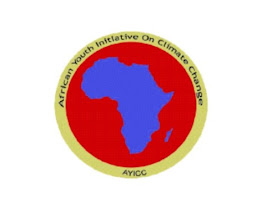Copenhagen Accord: More confusion
Hot on the heels of a non satisfactory outcome of last month's climate change meeting in Copenhagen is a piece of non impressive news. UNFCCC has rescinded, so to state, on its earlier set deadline of 31st January for countries to file their emissions reduction targets
In a now all too familiar vague language, UNFCCC's secretary says that
It has also emerged that
Your take is as good as mine. The accord was a smoke screen. Meant to buy time for the developing countries which had little or no intentions of facing the hard realities. On this I could be wrong but emerging facts show that what happened at Copenhagen,including locking out of NGOs, was carefully orchestrated.
Sample this.
There has been clamour to sideline the UN in the climate change negotiations. According to the proponents of this new scheme, the UN process is too democratic based on the principles of consensus among the 192 UN member states. As such, they propose to have negotiations involving the key emitters only. Granted, involving all countries make the process longer. This, however, should not be used as a basis for locking out countries which have an almost equal stake in the process. Developing countries might not be key emitters, but they suffer most the consequences of climate change. As such, they have an equal stake in the negotiations. Its a pity that the skewed proposal is getting buy ins from the likes of Yvo de Boer
"You cannot have 192 countries involved in discussing all the details. You cannot have all countries all of the time in one room. You do have to safeguard transparency by allowing countries to decide if they want to be represented by others, and that if a debate is advanced then the conclusion is brought back to the larger community", he said.
However, this more exclusive method of reaching agreement was criticised by some in
Critics argued that this was not only illegal, but undermined negotiations already taking place among the 192 countries and threatened the UN's multilateral and democratic process.
"The selected leaders were given a draft document that mainly represented the developed countries' positions, thereby marginalising the developing countries' views tabled at the two-year negotiations.
The attempt by the Danish presidency to override the legitimate multilateral process was the reason why
Clearly, we are not out of the woods yet. To me, Mexico is way too far for the people to collectively reclaim their role in the negotiations. We need something dramatic. Something major. Above all, we must keep vigil

Comments
Post a Comment